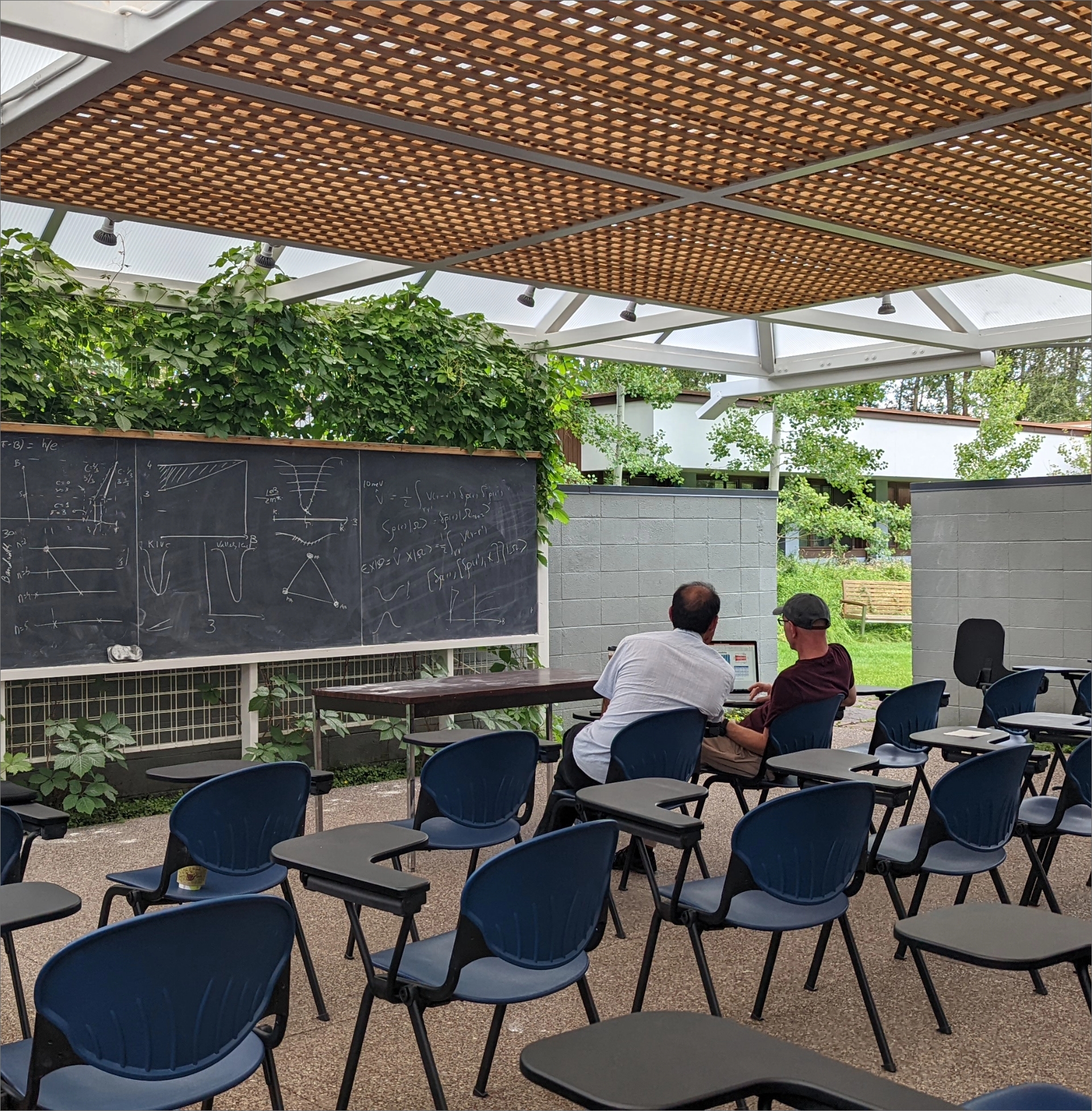
Summer Program
Accretion Physics in the Era of JWST
August 11–September 8, 2024
Organizers:
Misty Bentz, Georgia State University
Christine Done, Durham University
Martin Elvis, Harvard Smithsonian Center for Astrophysics
Guido Risaliti, University of Florence
The accretion-powered growth of supermassive black holes releases enormous amounts of gravitational potential energy, powering the activity seen in quasars and active galactic nuclei. This power is emitted as radiation across the electromagnetic spectrum, transforming the darkest objects in the Universe into the brightest, and is also emitted in kinetic components such as winds and jets. Together these feedback effects inject some fraction of the accretion power into the host galaxy, controlling its growth via star formation over cosmic time. While this outline captures our current understanding, fundamental unanswered questions remain such as “What is the nature of the accretion flow?” and “How can the accretion process grow such large black hole masses in such a short time after the Big Bang?” With the December 2021 launch of JWST, an enormous discovery space has been opened in wavelength, sensitivity, and angular resolution for studying massive accreting black holes across cosmic time. We will bring together experts in theory, observations, and computational modeling for discussion of the state of the art in our understanding of the AGN phase and the accretion process as well as collaborative planning for future exploration with the new tools and capabilities that JWST provides. Synergies with Euclid, Roman, and other new facilities will also be a key part of the Workshop.
Summer Workshops
The summer program, running for 16 weeks from late-May to mid-September, emphasizes exciting open problems at the cutting edge. Two or three concurrent workshops, each with a specific focus selected for timeliness and the potential for breakthroughs and of two to five weeks in length, establish the main themes of each week, with twelve or thirteen different workshops each summer, balanced across fields including particle physics, string theory, astrophysics and hard and soft condensed matter physics, as well as emerging areas including biological physics, ultra-cold atom physics, quantum information, and physical mathematics. Additional researchers participate in small working groups or as individual researchers. This framework is designed to maximize informal interactions and free discussion within each area and to promote cross-fertilization between different areas via the common language of theoretical physics. Participation in the summer program of the Aspen Center for Physics is by application and subsequent invitation only. View past workshops.
